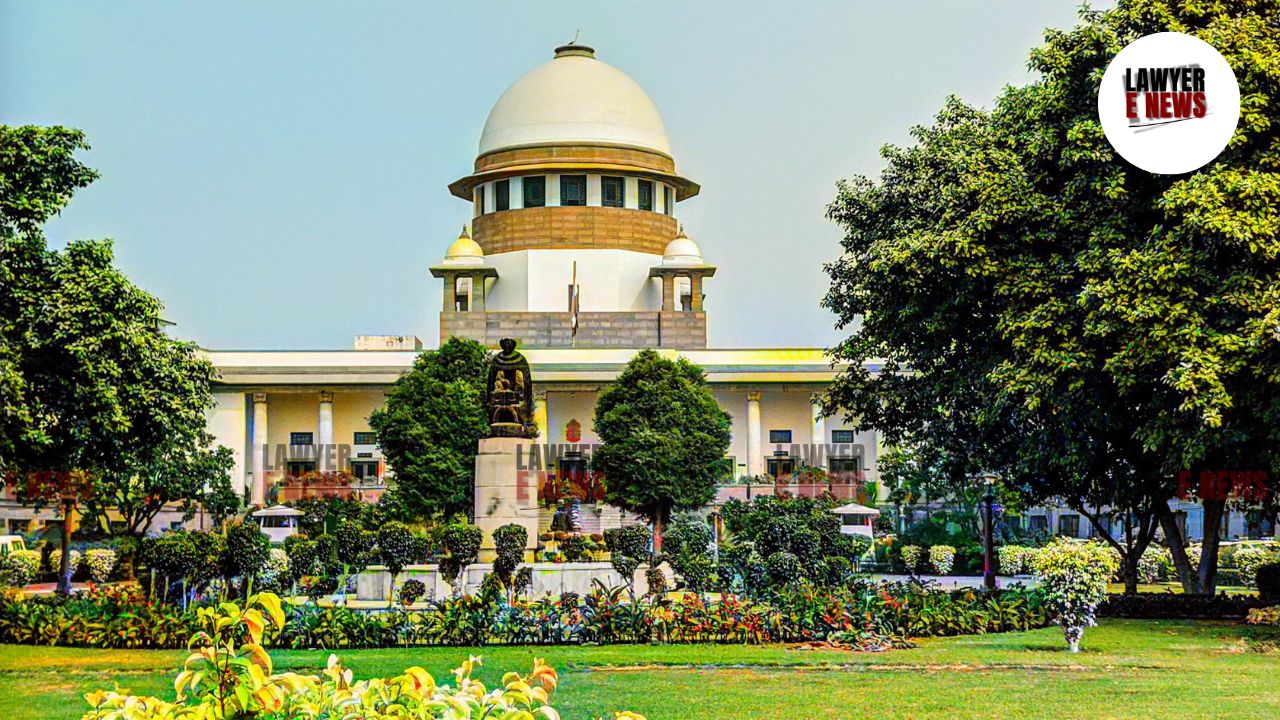-
by Admin
16 February 2026 1:47 PM



Once Prima Facie Satisfaction Exists, Trial Must Proceed—Courts Cannot Replace Due Process With Probabilistic Acquittal - Supreme Court delivered a scathing indictment of the Madras High Court’s decision to quash a corruption trial using its inherent powers under Section 482 CrPC, despite the fact that the accused’s discharge petition had already been rejected both by the Special Court and the High Court in revision. Calling it a case of judicial overreach, the Supreme Court ruled that such an invocation of Section 482 was contrary to law and procedure.
Justice P.S. Narasimha and Justice Manoj Misra underscored: “The High Court jumped to the probable conclusion of trial by not appreciating the limited scope of Section 482 CrPC. The focus of a pre-trial judicial review is not whether the material would lead to a conviction, but whether it discloses sufficient grounds to proceed.”
Three Judicial Authorities Found a Prima Facie Case—The High Court Could Not Nullify That Without Crossing the Threshold of Law
The case concerned allegations against G. Easwaran, then Assistant Director of the Nagercoil Local Planning Authority, who was charged with amassing disproportionate assets worth ₹26.88 lakh during his service tenure. The chargesheet was filed following sanction from the competent authority, and his discharge plea under Section 239 CrPC was rejected in 2016. That order was affirmed in revision by the Madras High Court in 2017.
Yet, just months later, the accused approached the High Court again under Section 482, seeking quashing of the proceedings. The High Court obliged, effectively nullifying its own earlier observation that the case merited trial. The Supreme Court termed this move as judicial impropriety, remarking: “Inherent jurisdiction cannot be used as a tool to override established legal findings unless there is a significant change in circumstances. The accused merely re-litigated the same grounds.”
High Court Conducted a Mini-Trial Under Guise of 482—Such Shortcuts Cannot Supplant Due Process
The High Court had examined witness statements and property documents to conclude that the assets might belong to the accused’s daughter and not him, casting doubt on the prosecution’s case. But the apex court reprimanded such pre-trial scrutiny of evidence as misplaced:
“Whether the property is held benami or not is a matter of evidence. The High Court, in its enthusiasm, pronounced what only the trial court is competent to decide after due process.”
The bench held that courts exercising Section 482 jurisdiction must refrain from examining probative value of evidence and instead only ascertain whether the allegations disclose commission of an offence.
Even Doubt on Sanction Can’t Justify Quashing—Factual Deficiencies Must Be Proved at Trial, Not Presumed by Courts
Another ground taken by the High Court was that the prosecution sanction appeared to have been issued before the requisition letter was received—based on mismatched dates. But the State clarified it was a clerical mistake, and the correct date of requisition preceded the sanction order.
The Supreme Court refused to accept such factual inconsistencies as grounds for pre-trial interference, stating: “The validity of sanction is a mixed question of law and fact. It cannot be conclusively resolved on paper pleadings, and certainly not by conjecture at a pre-charge stage.”
Relying on precedents including Parkash Singh Badal, CBI v. Ashok Kumar Aswal, and Dinesh Kumar, the Court emphasized that the trial is the correct forum to adjudicate such objections.
“Law Must Be Allowed to Take Its Course—Justice Cannot Be Pre-empted by Jurisdictional Overreach”
Restoring the case, the Court concluded that the High Court’s approach undermined the purpose of framing of charge and reduced the entire process into an anticipatory acquittal. The justices directed the trial to proceed without further delay and with complete procedural compliance.
In firm words, the Court concluded: “Justice demands that the accused be tried on evidence—not excused by assumptions. The High Court misapplied the law, ignored binding precedent, and usurped the function of the trial court.”
This ruling is a defining statement on the limits of Section 482 CrPC. The Supreme Court has sent a clear message: inherent power cannot be a tool of convenience to defeat trial. The judiciary must guard against pretrial dilution of justice, especially in cases involving corruption and abuse of public office.
As the Court rightly reminded: “The exercise of judicial discretion must honour due process, not subvert it. Trial is not a formality—it is the constitutional guarantee that law will speak only through evidence.”
Date of Decision: 26 March 2025
